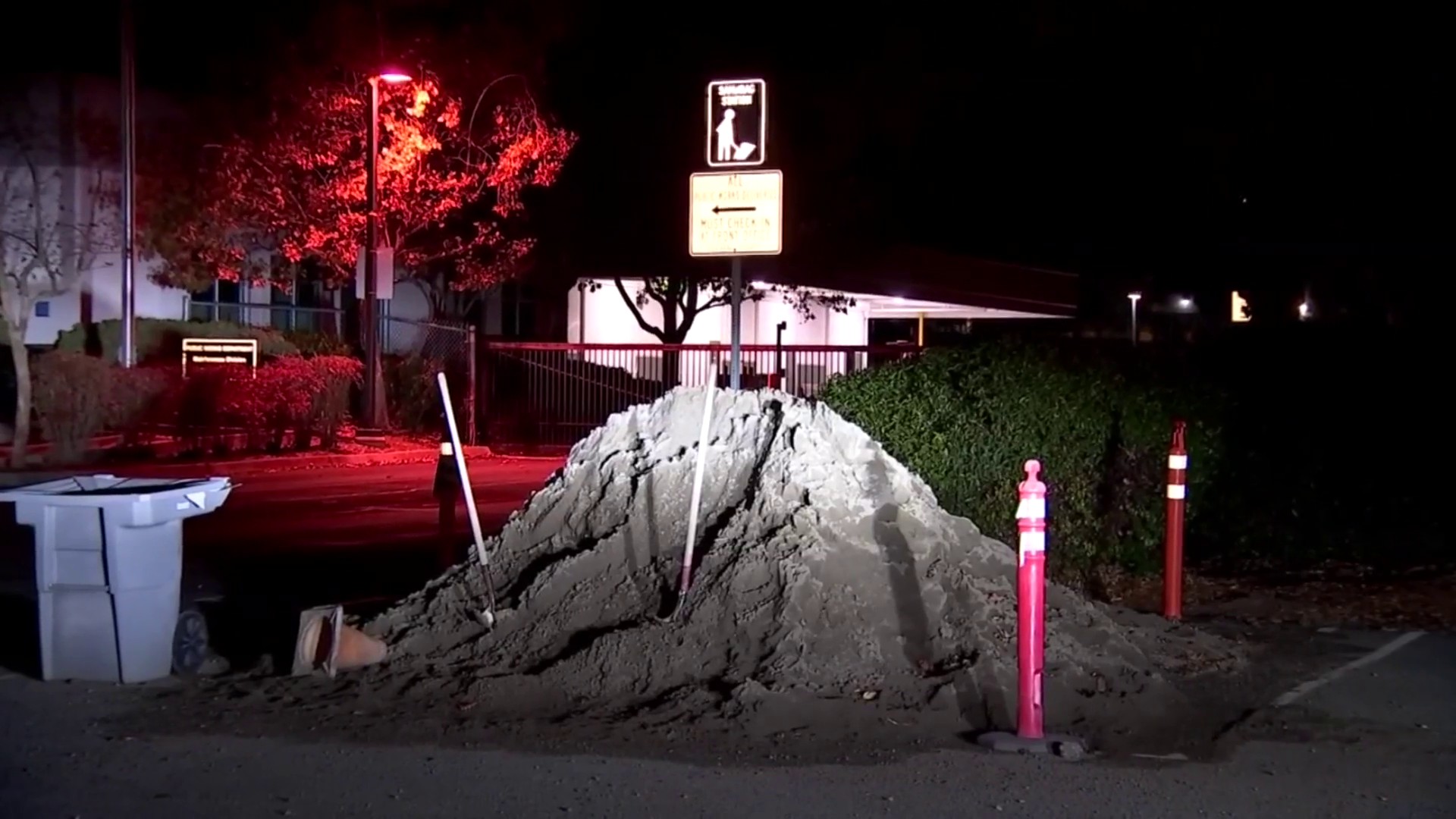In an attempt to circumvent San Francisco’s stringent regulations governing short-term home rentals, an increasing number of people are including false information on city applications in order to post their listings on popular home-sharing sites like Airbnb, VRBO and HomeAway.
Nearly Half of Applications Denied for False Information
In the wake of the city’s crackdown on unregistered listings, some property owners are attempting to skirt city laws by using fraudulent applications to obtain the required registration. Nearly half of those applying to become new hosts in San Francisco include misinformation on their city applications in an apparent attempt to make it seem as if they are complying with the city’s list of requirements when, in fact, they are not, according to the San Francisco Office of Short-Term Rentals.
Any home rented out in San Francisco for less than 30 days must be registered with the city, and someone must live there at least 275 nights per year. The NBC Bay Area Investigative Unit has learned about 45 percent of short-term rental applications are now being denied for what appear to be false residency claims, in which the applicants falsely state they are the “primary resident” of the home, which is a requirement for all short-term rentals. Before the recent spike, the rate of application denials averaged between 35 and 40 percent.
Application Backlog Creates Loophole for Short-Term Rentals
The increasing number of false claims, according to city officials, is contributing to a significant backlog of applications. About 1,100 short-term rental applications are currently pending as they make their way through the city’s review process.
While the four-person staff at the Office of Short-Term Rentals attempts to weed out potentially fraudulent applications, processing times have slowed to a crawl. It now takes the city an average of nine months to review new short-term rental applications.
Local
San Francisco, however, allows applicants to rent out their homes while their registration is still being evaluated. As a result, listings that don’t comply with San Francisco’s rules and regulations can stay active, potentially for months, until the city completes its review process and denies the application.
“There is an ongoing challenge for people who want to game the system and not play by the rules,” said Omar Masry, senior analyst at the San Francisco Office of Short-Term Rentals.
Upon City's Request, Home-Sharing Sites Remove Questionable Listings Within Days
A 2017 settlement agreement between San Francisco and home-sharing companies Airbnb and HomeAway requires short-term rental hosts to provide proof they are properly registered with the city, or at least have a registration application pending, in order for them to be allowed to post rental listings online. There are currently 2,442 registered short-term rentals across San Francisco, according to the latest city count.
As a result of the settlement, online platforms are also required to be more vigilant about removing illegal, unregistered listings from their sites. Masry said the companies have complied with the terms of that agreement, removing unregistered listings within an average of six days once city officials submit the request.
“When we notify listing services like Airbnb and VRBO, they, in turn, not only remove listings, but they also cancel pending reservations because you may have people who are booked out for months,” Masry said.
But as more and more unregistered listings became deactivated, an increasing number of hosts sought registration through false residency claims, according to Masry.
“Unfortunately, it is a challenge and it’s more work for us to prove that they’re falsely stating residency,” Masry said. “We’ve had to go through that many times, and we will continue to do so.”
The uptick of applications following the settlement agreement has nearly tripled wait times for obtaining a short-term rental certificate, from roughly three months to nine months. Even once the city denies an application due to a false claim of residency, applicants sometimes apply again and again.
"We would like them to have more adequate resources to be able to process those [applications] faster,” said Matt Middlebrook, who heads policy and government affairs for Airbnb. “Would we like [San Francisco] to be able to reduce the backlog? Sure.”
While Middlebrook concedes fraudulent applications are problematic, he said the company is doing everything required by law.
“What we have is a system now that works, where the city can go through that process and look at those applications and notify us of a fraudulent application," he said.
HomeAway and VRBO did not respond to requests for comment.

'We Couldn't Live There Anymore'
Monika Krueger and Jim Ledane say an illegal short-term rental above their home prompted them to leave their apartment. The couple lived in the lower half of a duplex near West Portal for four years but says it became unbearable after the landlord, who lives in China, turned the top apartment into a full-time hotel in late 2015, regularly posting it on Airbnb.
“We loved living in the Bay Area, living close to family. Our friends were here,” Krueger said. “We couldn’t live there anymore. It was too stressful, we literally lost sleep.”
Krueger and Ledane said the stream of guests was constant. Along with the guests, came parties, trash, fights, and a host of other issues.
“One night there was a huge fight,” Krueger said. “People were arguing, and furniture was falling down, and it was like 2 o’clock in the morning.”
Krueger said a child jumping up and down upstairs even caused a light fixture to fall from their ceiling and cut her foot.
“It literally fell right next to her,” Ledane said. “If she had been standing one step over, it would have hit her right in the head.”
While quality of life complaints filed with the Office of Short-Term Rentals have dropped dramatically since the settlement agreement between San Francisco and Airbnb, the office still receives complaints centering around hosts who fail to live in their rental units for at least 275 night per year.
Krueger and Ledane’s landlord attempted to get the upstairs unit registered as a short-term rental, stating a woman named Li Yang was the full-time renter, paying $4,000 per month in rent, according to the application obtained by NBC Bay Area.
'There Needs to be More Resources'
But Krueger and Ledane said nobody was actually living there while the unit was being rented out nonstop. The city, ultimately, agreed and denied the landlord’s application on two separate occasions.
The second denial letter came last year, but in January of this year, a neighbor complained to the city saying the apartment was still being rented out.
Krueger and Ledane sued their landlord and ultimately settled for an undisclosed amount for troubles they say they incurred as a result of the illegal short-term rental.
An attorney representing the landlord and her property manager declined to comment on their behalf.
Krueger and Ledane ultimately moved out of San Francisco after failing to find a new home within their budget. The couple wants to see the Office of Short-Term Rentals boost staffing and increase fines for property owners who are caught abusing the system.
“There needs to be more resources put towards regulating it and monitoring it,” Krueger said. “If there is that much fraud, then there has to be more oversight.”
Editor's Note: A previous version of this report misstated the current number of registered short-term rentals in San Francisco. There are currently 2,442.
______________________________________
Need to contact our Investigative Unit?
• You can remain anonymous
• 1-888-996-TIPS
______________________________________
Watch the entire series in this NBC Bay Area investigation:
- Part 1: Thousands Violate SF Housing Laws Using Airbnb, Few Face Penalties
- Part 2: Illegal Short-Term Rentals Can be Nightmare for Neighbors
- Part 3: San Francisco Lawmakers Could Soon Force Airbnb, Other Home-Sharing Websites to Make Major Changes
- Part 4: Airbnb Sues SF to Block New Law Aimed at Delisting "Illegal Rentals"
- Part 5: SF Law Targeting "Illegal Rentals" on Hold as City Battles Airbnb Lawsuit
- Part 6: Airbnb Heads to Federal Court Over Lawsuit Against San Francisco
- Part 7: Judge Raises Doubts Over Airbnb's Lawsuit Against San Francisco
- Part 8: Judge Orders SF to Hold Off on Airbnb Fines and Penalties
- Part 9: Airbnb and SF Meet Privately to Settle Bitter Lawsuit
- Part 10: San Francisco Limits How Often Hosts Can Use Airbnb
- Part 11: Airbnb's New Rules Abroad Could Impact San Francisco
- Part 12: SF Issues $1.1 Million in Fines to Hosts Using Rental Sites Like Airbnb
- Part 13: Thousands of Airbnb Rental Listings in SF Could Soon Be Purged



